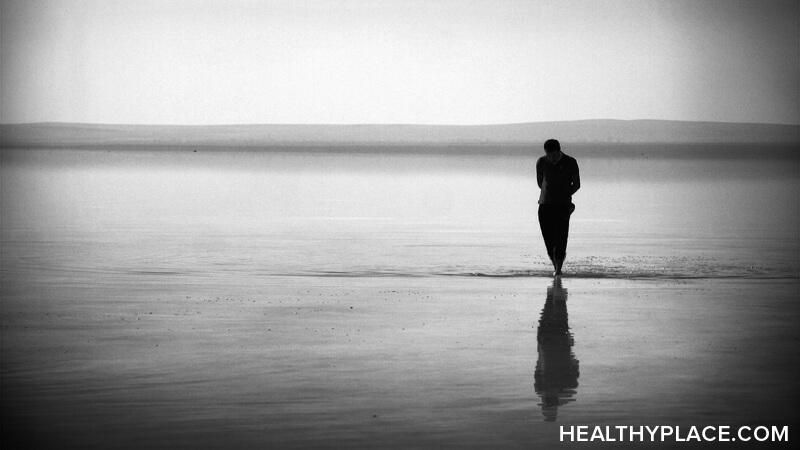What It's Like to End a Relationship in ED Recovery

I am not the type who writes a meticulous, in-depth list of resolutions each year. But with the start of 2023 just around the corner, I have been reflecting on which aspects of my life should come with me into the future and which ought to be left behind in the past. Which behaviors, mindsets, attributes, or relationships have I outgrown? Which characteristics align with my core values, and which no longer serve the person I want to become?
Moreover, what (or who) is a barrier to my healing process? Would it be wise—however painful—to walk away? As I mull over these questions, it's clear to me that I will not move forward without first creating distance from someone I happen to love immensely. So as crushed as I feel about my own decision, I have chosen to part with a friend as the year closes out. This is what it's like to end a relationship in eating disorder recovery.
Why I Chose to End a Relationship in Eating Disorder Recovery
The more experience I gain in life, the more I learn to accept that many relationships are seasonal. Some connections are not sustainable long-term, and some friends are not meant to stick around forever. They fill a specific role over a certain period of time, and then for whatever reason, their mission is complete. As someone who wrestles with an intense fear of rejection, this has been a painful lesson to digest. But there will be seasons when my role in another person's life eventually runs its course too. At this crossroads, I have to choose whether to maintain the status quo of a relationship or disconnect for the sake of my own wellbeing.
That decision has been heart-wrenching, but I choose myself. I will not speak harshly of the other person in this scenario because, for the duration of our friendship, she was like a younger sister to me. However, although I felt close to her, I have sensed for a while that our dynamic was starting to become toxic. She battles an eating disorder as well, and for the past three years, she sought me out continually for emotional support while refusing the clinical interventions or mental health resources that might have ultimately helped her recover.
Despite all my efforts to steer her in the direction of therapy, she insisted I was the only one she could trust. No matter how many times I pointed out my lack of professional qualifications, she pled with me to listen to her. I failed to create boundaries, so I began to feel like her personal crisis hotline. Meanwhile, I rarely saw her implement the counsel she asked for. This was no longer a friendship but a transaction—and my heart could not take it anymore.
After a few years of that pattern wreaking havoc on my mental and emotional balance (not to mention my own eating disorder recovery), I faced the truth. This relationship would either have to change or reach a conclusion. Unfortunately, she resisted my attempts to renegotiate the terms of our dynamic, so I have since communicated that I must walk away. I would have sincerely welcomed a reciprocal, authentic friendship with her, but I also know in my bones that it was right to end the relationship. Sometimes healing requires the self-awareness to leave.
How It Feels to End a Relationship in Eating Disorder Recovery
Have you experienced what it's like to end a relationship in eating disorder recovery? What emotions came to the surface? Were you left heartbroken, relieved, or somewhere in between? Did the choice feel complicated or straightforward? Was your healing impacted in the aftermath? What have you learned from leaving this relationship? Share your thoughts in the comment section.
APA Reference
Schurrer, M.
(2022, December 29). What It's Like to End a Relationship in ED Recovery, HealthyPlace. Retrieved
on 2026, January 17 from https://www.healthyplace.com/blogs/survivinged/2022/12/what-its-like-to-end-a-relationship-in-ed-recovery